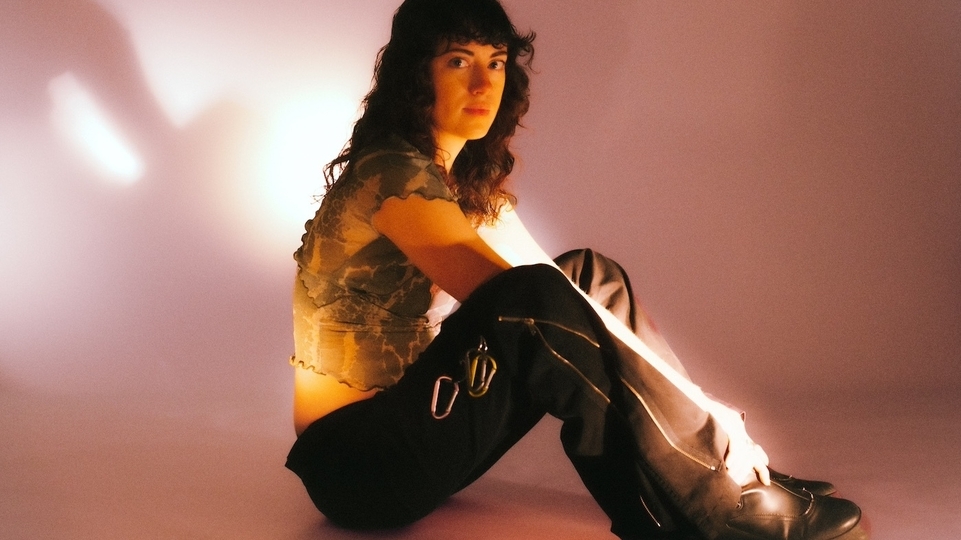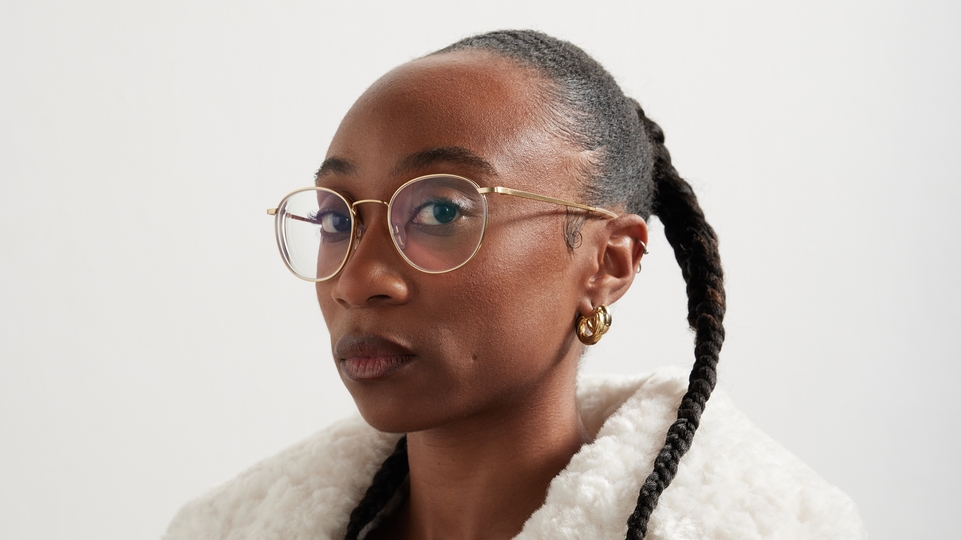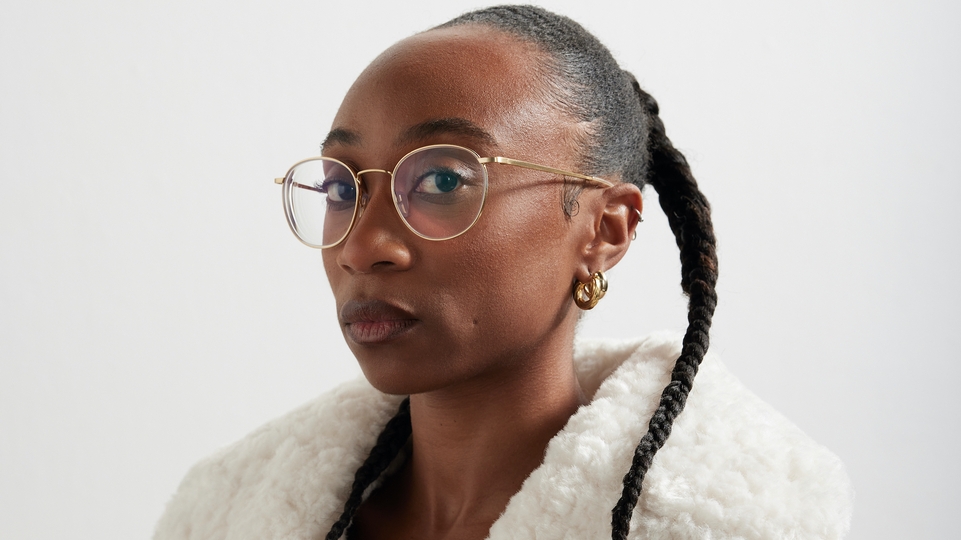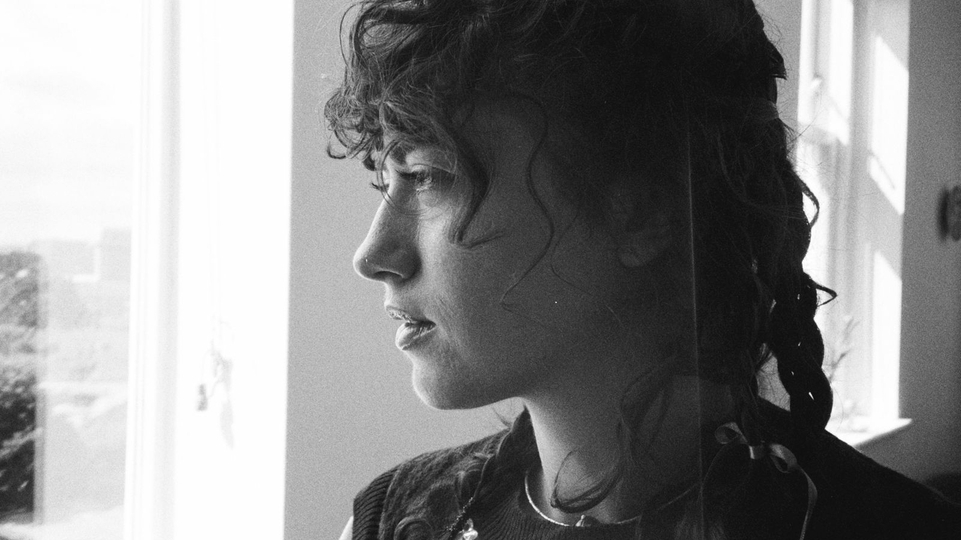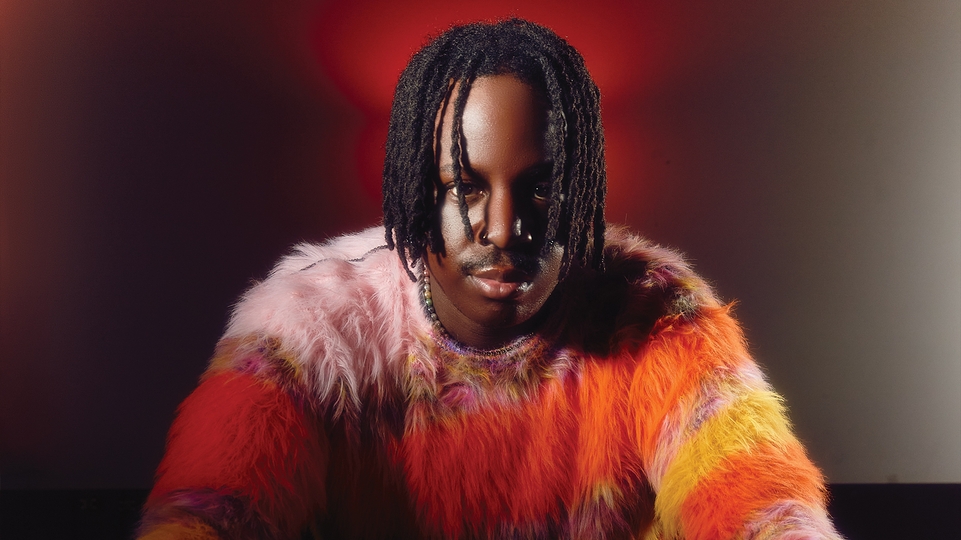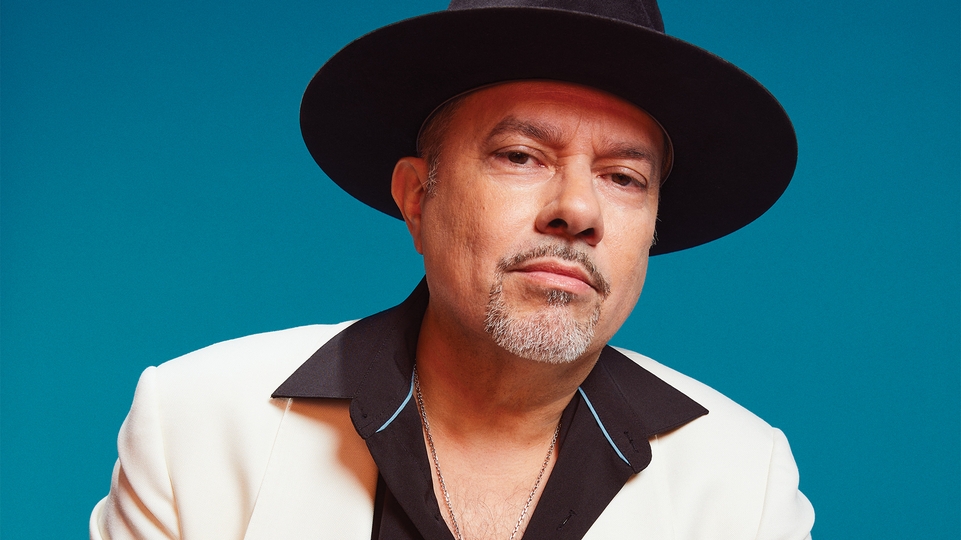
Or:la: living the dream
Derry-born DJ, producer and Céad label boss Or:la has had a remarkable journey so far, from throwing raves in abandoned buildings to playing the world's most respected clubs and festivals. As she celebrates her Best DJ win at DJ Mag's Best of British Awards, she speaks to Katherine Rodgers about the life experiences that have brought her to where she is now, her debut album, and the guiding influence of dreams on her path
Becoming a DJ came to Orlagh Dooley in a dream. No, really. During her first year of university, Dooley had an epiphany, in the form of “a dream where I could see myself DJing... and I’d never even thought of DJing before. It was so weird.” Dooley woke up, downloaded some free DJ software onto her ancient laptop, and got started as Or:la.
Perhaps we should all choose our careers through epiphany, because it seems to be working out pretty well for Or:la. For an artist still in her twenties, she’s managed to do just about everything you can within dance music. She DJs and produces original music, runs record labels and has years under her belt hosting parties, even breaking into abandoned office blocks to do it — all while garnering support from a growing international audience, particularly across the UK and Europe.
In recent years, Or:la’s hit the road with as much force as the pandemic has allowed. She’s helmed the booth at UK festivals like Lost Village and Field Maneuvers, and in make-or-break clubs like Ibiza’s Circoloco, Berlin’s Berghain, Tbilisi’s Bassiani, London’s Printworks and Corsica Studios, and New York City’s Nowadays. Though global, ever-changing restrictions on touring necessarily slowed her touring momentum over the last year or so, she still played major sets in 2021 that saw thousands lock into her groove, most notably at Belfast’s AVA Festival.
And it seems like the wider industry is embracing Or:la’s vibe. In 2020, she recorded an Essential Mix for Pete Tong’s legendary BBC Radio 1 show, and starting this month, she’ll be part of the station’s taste-making Radio 1 Dance Residency, sharing top billing with Goldie, Sama’ Abdulhadi, Scratcha DVA, Folamour and LCY; spinning an eclectic mix of dance tracks during the station’s primetime slot.

At the 2021 edition of DJ Mag’s Best of British awards, the public voted Or:la the UK’s Best DJ from a shortlist of DJ Mag nominees. She now joins the ranks of other Best DJ winners, named alongside heavy hitters like Andy C, SHERELLE, Eats Everything and DJ EZ. Considering that Or:la won the Breakthrough DJ category at Best of British just five years ago, it’s a testament to just how brightly her star is shining right now.
Or:la is thoughtful and particular. She speaks in a gentle Derry lilt, her steady gaze peering out from a shock of curly brown hair. Dooley has recently relocated to London, which she’s enjoying — if it wasn’t for the mysterious banging noise coming from the flat below, which has been disturbing her sleep. Somewhat unnervingly, during our conversation over tea and biscuits, we’re informed by the landlady that the flat has been vacant for quite some time, leaving Or:la looking horror-struck.
Perhaps fittingly for someone attuned to the spiritual, Or:la grew up in Inch, a tiny island on the Irish border in County Donegal, on a wild, cinematic stretch of coastline known as the Wild Atlantic Way. Unsurprisingly for an island with a population of fewer than 500 people, she grew up surrounded by “wild birds, grassland, marshes and lakes”, and her closest neighbours were a wildfowl sanctuary. Dooley credits her remote upbringing with activating her imagination at a young age.
“It really allowed me to be creative,” she says. “I guess boredom is important in that sense? I feel sorry for today’s teenagers who can’t reach that place of utter boredom, because they’re constantly being entertained by TikTok, or whatever — because a lot of creativity can come from that place.”
Starved of entertainment, she and her siblings turned to music to keep themselves occupied. Their first creations were heavily influenced by “country and western vibes” — an enduringly popular genre in rural Ireland — but her first musical love came in the form of the 1999 UK garage hit ‘Sweet Like Chocolate’, by short-lived musical duo Shanks & Bigfoot. She recalls hearing it on the radio and riding her bike round and round her yard in excitement.
“I remember thinking that it sounded like nothing I’d ever heard before,” Dooley says. “After that, I forgot about that song for a long time, and then the whole garage revival thing came back; it made me realise that I can really join the dots between that song and the type of music and sounds I enjoy at the moment. Like, it’s always been there.”
Age 13, Dooley moved from the idyllic Inch back to the more urban Derry, to attend school. In Northern Ireland, schooling is still largely segregated along religious and cultural lines, with 93% of Northern Irish children attending faith-based schools. Moving to an area with more schools which align with your family background is a pretty common experience.
Dooley attended a Catholic convent school, which she loathed. As a young, then-closeted queer woman, she was frustrated by the Church’s outspoken antagonism of the LGBTQ+ community, and as someone from a non-religious family, her school’s religious bent left her feeling isolated. Coming into school on Monday mornings, she was drilled by her teachers on the contents of the sermon from the Sunday Mass; her friends would whisper the answers to her.
In later years, as Or:la, she would channel that rebellious spirit into programming her own queer-friendly club nights, an endeavour she describes, poignantly, as “an antidote to the shame and programming I developed while in the closet, and a way to release the power of that shame.”

“[Rural life] really allowed me to be creative... I guess boredom is important in that sense? I feel sorry for todays teenagers who can't reach that place of utter boredom, because they're constantly being entertained by Tik Tok, or whatever — because a lot of creativity can come from that place.”
The move from country to city was Dooley’s first exposure to electronic music and Derry’s small but lively clubbing scene. “I had a fake motorcycle ID that I used, and if that failed, me and my friends would find out what 18th birthday parties were happening in the local area — just through the grapevine at school — and we’d gatecrash them, just so we could have a dance and hear a DJ. Eventually, people would be like, ‘who’s that group in the corner?’, and we’d have to make a pretty speedy exit.”
Dooley made her solo exit from Derry in her late teens, to study for a degree in Media Production at Liverpool University. It was in Liverpool that Dooley had her DJ epiphany — and where she began Meine Nacht, her first club night, which she ran as Or:la alongside fellow DJ Breakwave. Meine Nacht was the epitome of a DIY night. “We didn’t have a club venue, so we would just drive around looking for spaces we could use for the night,” she remembers. “Like, we’d just go around finding abandoned buildings, or knocking on doors. And we did everything ourselves — from working the door to cleaning up afterwards.”
One night, Or:la held a 300-person rave in former Co-op supermarket (“I don’t think the owners ever knew”), while another night found them teaming up with Felicity Wren, an art gallery owner in her seventies who gamely let them use her space, and even worked the bar at the rave. “She’s sadly no longer with us, but she was so sweet and welcoming,” she remembers.
Not every party was a positive experience. One night, a group of men began throwing stones at a warehouse Or:la and her friends were in, forcing the crowd to flee through the lorry loading bay. She figured out a lot in those early years in Liverpool about what makes a good party.
“It was an incredibly formative experience — we learned everything from setting up soundsystems, to cleaning and security. There’s a lot of environmental factors that go into making a club night, and ultimately, we have a responsibility for everyone.” Perhaps unsurprisingly, Or:la’s passion for creating safe, welcoming club spaces came also in part from her own experiences as a solo, female touring DJ.
“When I first started touring, I had some bad experiences. I had men rattling the barriers in front of me, trying to distract me. I had someone shout ‘Suck me off’ really loudly during a breakdown. I had men asking me to smile when I’m DJing — that one happened quite a lot.”
One night, Or:la decided she’d have her revenge. “I told myself that if someone asked me to smile one more time, I’d turn the music off. Obviously, some guys started trying to distract me by telling me to smile — and I turned the music off and they nearly shat themselves. Like, the look on their faces was priceless,” she says, with a grin.

These days, Or:la prefers to play “queer and inclusive venues”, where people “mind their own business, and aren’t up in your space staring at you, or trying to take photos”. She’s naturally introverted, preferring to maintain a steely sense of concentration during her sets, rather than playing theatrically to the crowd. Her introversion is something which she accepts doesn’t make being a DJ the most natural career choice.
“With extroverts, blood flow in the brain is directed more to interpreting sensory data, while in introverts, it’s directed towards interpreting your internal landscape. So for extroverts, seeing people’s faces during a DJ set would probably energise them, when it’s kind of like the opposite for me.” After university, she tried out a succession of jobs at bars, coffee shops, and one depressing stint in an HMRC call centre, all in and around Liverpool. “I hated them all. Especially the HMRC one,” she says. “I was in this big, grim, asbestos-riddled building, taking complaint calls all day.”
After she quit HMRC, she tried selling tickets for a season in Ibiza. “It was an eye-opening experience, but I was really, really bad at my job,” she laughs. “I scraped by, but I ended up completely running out of money. I even contemplated stealing chips from the airport Burger King when we were on our way home.”
Or:la swore she’d only return to Ibiza if she was booked to play — which she was, at DC10 in 2019, just a few years later. Like most terrible jobs, Or:la’s early career proved unpleasant but formative. “In the end, I was kind of glad it was all so awful, because I wouldn’t have pushed myself to try and make it in music.”

Back home in Derry, Dooley continued making music as Or:la. She received a fair bit of attention after she uploaded her stripped-back remix of Beyoncé’s classic anthem to self-love, ‘Me, Myself & I’, to a free download site. In 2016, she struck gold — three original tracks she sent to Hotflush label owner Scuba were signed, and packaged as ‘UK Lonely’, her first EP as Or:la.
In many ways, ‘UK Lonely’ is a love letter to UK club music. Simultaneously sounding like the past and the present, it takes familiar elements from dance music and blends them in new and unfamiliar ways. ‘Limbosoup’ is grounded in UK funky, but brings in some unsettling sonic twists; there’s an off-kilter synth arpeggio, and a repeating sample of what sounds like a phone ringing underwater.
Around the time of the release of ‘UK Lonely’, Or:la started experimenting with becoming a label boss, launching vinyl-only imprint Deep Sea Frequency (alongside Breakwave), which released music from Carlton Doom, DJ Seinfeld and Or:la herself. Later on, she started Céad, which releases music from similarly hard-to-pin-down artists like Lewski and Blu Terra. There are playful quirks and tricks involved with Céad: one release’s artwork includes a hidden quote from a Greek philosopher, while others are designed with binary code — “on the off-chance one of our fans can read binary code!” — and various hidden messages.
The most recent release, Céad’s seventh, is a four-track compilation titled ‘MMXXI Inferno’: featuring artists FAFF, Mary Lake, Supreems and Splash Pattern, with all proceeds from sales going towards Afghan Aid. On release in September 2021, DJ Mag described the compilation as striking “a perfect balance between toughness and trippiness; off-kilter electro and techno rhythms gallop and jolt, while sci-fi zaps, sub bass, and cyborg vocal chops sizzle and spark for maximum impact.”

Or:la ventured into running independent labels in a bid to maintain creative control over her career — “I didn’t want to have to rely on other people to give me the opportunity to release my music” — and because she was inspired by a “paradigm shift” happening in the UK music scene. Around six years ago, the wavy sounds of lo-fi house took off in a big way, breaking a new generation of artists with a keen sense of humour, a high tolerance for imperfection and a great deal of respect for the old school.
While Or:la’s sound is perhaps too iconoclastic to slot into this movement wholesale, she was inspired by various elements of it. “It proved that dance music didn’t have to be so rigid, or take itself so seriously,” she says, “and it allowed me to have more confidence because I realised that you don’t have to make totally clean mixes, or to be an expert at compression and EQ, to release music.”
Her attention to detail within her labels and original music extends to her appreciation of mysticism, filling her work with arcane symbols and Celtic iconography. “There are covert references to Irish history and mythology embedded in everything that I do. It’s really important to me to showcase Irish culture.”
Or:la’s t-shirts feature illustrations from books of Irish myths and legends, and she laces oddball sonic references through her productions. On a recent, untitled track, made to soundtrack Irish fashion designer Robin Lynch’s newest collection, Or:la samples a 1993 Irish news broadcast covering a piece of legislation banning “freely roaming horses” in Dublin — which sounds like something that should have been banned way before 1993.

After her time in Derry and Liverpool, Or:la moved to Berlin for two- and-a-half years. She didn’t really connect with the party capital of Germany — she describes it as “a city of lost souls and unreality” — and has since settled nicely in Brixton, South London. She loves her adopted neighbourhood, and sees a connection to it and other places she’s lived in; she describes herself as “being drawn to places which have a rich musical culture, as well as a history of conflict or upheaval. You can feel it manifest itself in the local crowds, and how people value coming together to enjoy music.”
Music as a source of healing and reconciliation is an idea which holds particular power within the Northern Irish music scene. In the years during and after the Northern Irish conflict, known as The Troubles, club nights played an important role in providing cross-cultural experiences for the Catholic and Protestant communities, and became an outlet for the life-affirming hedonism which often filters through post-conflict societies.
This is an idea that’s affected Or:la deeply. During our conversation, she quotes, from memory, a line from the 1995 Northern Irish documentary Dancing On Narrow Ground, which follows two groups of working-class ravers — one Catholic, one Protestant — as their worlds collide at Kelly’s, a legendary nightclub on the North coast: “They danced like they never danced before. They danced to drive away evil spirits, they danced to save their souls. They danced until the darkest hour before dawn.”
This tradition of finding liberation and resistance through hedonism is something that Or:la seeks to continue with her own club night, La Potion. While the night is still in its infancy — when we spoke, she’d only just put on her first night in London, and was busy planning a follow-up — she’s keen to establish it as “a space where all kinds of people can just be themselves, and where they are free to resist societally imposed labels and identities.”
This spirit of rebellion is present in the diverse range of artists Or:la showcases. Headliners have included queer Israeli DJ Roi Perez, super-eclectic Dutch selector Elena Colombi, and Canadian DJ and producer Peach, a rising star in the UK club scene who tends towards bouncy, high-energy beats. While the artists all fall broadly within electronic genres, Or:la pairs their sets with a diverse mix of live performers, including drag queens and acrobatic dancers, in a messy, vibrant celebration of queer creativity.
Or:la feels strongly that queer and non-binary people should “have the opportunity to see that they can be performers, and the people behind parties, rather than just being part of the crowd”, and notes that even the event’s mystic-themed artwork was created by queer designers. This enthusiasm is perhaps informed by her experience growing up feeling like she was “the only gay in the village” in Derry, a city historically under-served by LGBTQ+ venues and events — indeed, she has plans to bring La Potion to Derry, in a bid to bump up the number of queer parties in the city.

“Irish crowds are just the best crowds, in terms of their energy and open-mindedness... the Irish scene is in an incredibly healthy place — and it’s only going to get better.”
It’s difficult not to be struck by the immense sense of pride and protectiveness Or:la has in her Irish identity, even though growing up there clearly wasn’t the easiest experience. Besides, the Irish scene has been kind to her. She shouts out several organisations, including Skin & Blister, a collective who platform female, trans and non-binary creatives in Dublin nightlife, and Celtronic, a team of Derry-based electronic music promoters, who Or:la credits as being one of the first parties to ever book her, and keen supporters of her from the beginning of her career.
What Ireland’s underground scene perhaps lacks in scale, it makes up for in vibrancy. Irish crowds are “just the best crowds, in terms of their energy and open-mindedness”, she insists, and describes the electronic music scene as generally “in an incredibly healthy place — and it’s only going to get better”. Or:la saw something of a homecoming happen in the summer of 2021, despite severe lockdown-related nightlife restrictions, when she played a thrilling and punchy set at Belfast’s AVA Festival.
For now, though, Or:la is happy in London — and is busy working on new music. Her debut album, her first solo release since 2017’s ‘Farewell 24’, is slated to come out in summer 2022. Like many artists, the break provided by the pandemic gave Or:la the space she needed to solely focus on creativity, rather than squeezing it in around tour dates.
“I could never have made the record while I was touring. It allowed me to live in the moment, rather than constantly planning for the future, which would just feel like headlights in the fog. To be honest, I was close to burnout before then. But I know how privileged I am, that I can take anything positive away from the pandemic.”
When discussing the inspiration behind her upcoming debut album, Or:la cites Remedios Varo. A female surrealist artist active in the 1950s and ’60s, Varo’s work merges art and science, drawing from spiritual concepts and practises like alchemy, mysticism and the occult, as well as scientific disciplines like chemistry, hydraulics and physics.
Inspired by Varo’s multidisciplinary approach to creating art, Or:la spent lockdown going deep down the rabbit hole, delving into weird corners of the internet and endless Reddit threads, in a bid to research how music “could be used to create a loop between your external surroundings and your subconscious.”
From all of this enthusiastic digging around, Or:la bought a mind machine — a clunky-looking headset which uses binaural beats and flickering lights to induce different brain states in wearers, first popularised in the ’60s and ’70s as a form of “digital drugs” (she describes it as “like doing mushrooms without doing mushrooms.”)
Or:la has ambitions to use these mind machines in her future work, and is particularly charmed by the possibilities they hold in creating new communal music experiences; of groups of music fans listening to the same music through mind machines, “wrapped up in their own little cocoons, while accessing an experience that’s personal and communal” — it’s an idea which holds obvious appeal for anyone who self-identifies as an introvert.

Another source of inspiration came from dreams. Like many of us, Or:la’s dreams were unusually vivid during the pandemic, and she began paying particular attention to them in a bid to explore “the dynamic between the conscious and unconscious worlds.” Many of the tracks on her upcoming album are inspired by dreams Or:la has had — she describes one unsettling recurring dream “where I have chewing gum stuck in my mouth, and I’m pulling at it and pulling at it”. During our conversation about dreaming, Or:la effortlessly tosses out references to concepts like Automatism (a style of art which uses free association — it’s a Freudian thing) and the collective unconscious (the idea that all humans share a common ancestral memory — it’s a Jungian thing).
The result of all of this deep thought is a sound which is notably more contemplative and complex than Or:la’s early tracks. While ‘UK Lonely’ is an exhilarating ride through the history of UK dance, the new tracks take a step away from pumping, sweaty dancefloors — which makes sense, given that most of it was made during the depths of lockdown, when clubbing was an impossibility.
While there is one new track in production which can be reasonably described as a banger — combining dubby drum beats, a jagged synth line, and a ‘let me hear you scream!’ vocal sample — many of Or:la’s new tracks hold a different kind of appeal. One demo merges soothing washes of electronic sound with a thumping, juddering backdrop, in a cinematic soundscape that wouldn’t sound out of place on a science fiction soundtrack; another combines jagged fragments of synth with a nervous, frenetic drum pattern.
While much of her original music pays homage to recognisable dance music genres by melding them together, it’s harder to pick out obvious musical influences in this new work — it feels slippery, futuristic and in places, genuinely unpredictable. Perhaps the only thread which connects Or:la’s new music to ‘UK Lonely’ are the dark, dub-influenced drum patterns; reappearing on several tracks, they anchor the disparate array of sounds.
Given her interest in technology, it’s perhaps no surprise that Or:la is cautiously open to the metaverse, and the potential that new technologies hold to usher in new artforms and communal experiences. “I’m interested in how the metaverse could present more inclusive environments, in terms of clubbing. It could completely eradicate the need for physical safety.”
Having said that, she’s sceptical about the abilities of virtual reality technology at present, and won’t be planning her own virtual club nights any time soon — she reckons we’re “about 10 years” off metaverse club nights rivalling IRL ones, despite what Mark Zuckerberg says. She’s also open to the potential web3 holds to “transform how artists make a living” — but again, she maintains a dose of scepticism, noting that “on the other hand, these technologies perpetuate ideas of individualism, and place high levels of importance on ownership, which obviously goes against the collective ethos of raves.”
There’s no denying that being an artist is an increasingly tricky business these days. Diminishing revenue streams, paltry streaming pay-outs and the increasing monopolisation (and mistreatment) levied through record label contracts means that plenty of artists are seeking out escape routes from the relentless grind of touring and running down recording contracts. Artists like Or:la present a genuine alternative to the status quo, carving out niches for herself by pursuing a wide range of creative interests, and retaining a sense of curiosity and openness.
This loosely-connected smorgasbord of creative activity she’s hit on over the past year is all coming together to form a new stage in her career; linking a series of projects and disciplines — musical, artistic, technological — under a set of unifying themes and associations. In this new year, we’ll be seeing and hearing much more of Or:la.
She’s kicked off 2022 with the start of her BBC Radio 1 Dance Residency, from midnight till 1am; around her Residency shows, she’ll be planning more La Potion parties and working on her debut album and exhibition. “I’m not confined to one style,” she says, “but it’s important that it all connects and intersects. In such a binary world, it’s important to embrace the grey areas.”

